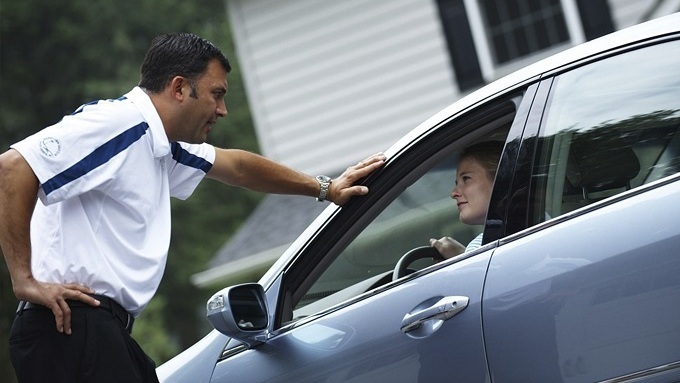Research In Action
Research In Action
Breadcrumb

For autistic adolescents and their families it can be difficult to find the support they need to safely navigate the learning-to-drive process or to pursue other ways to become independently mobile.To help provide this support, the Eunice Kennedy Shriver National Institute of Child Health and Human Development recently funded a five-year CHOP-led study to gain a more comprehensive understanding of mobility issues for autistic adolescents. I am excited to share what our multidisciplinary team, led by Allison E. Curry, PhD, MPH, has learned so far.
We recently published research in the journal Autism in Adulthood, “Teaching Autistic Adolescents and Young Adults to Drive: Perspectives of Specialized Driving Instructors,” which examines the process and experience of driving instructors who provide behind-the-wheel training specifically to autistic adolescents and young adults.
According to previous research conducted at CHOP, two-thirds of high functioning autistic adolescents of legal driving age are either currently driving or plan to drive. Our team also found that the majority of autistic adolescents who obtained a learner’s permit went on to become fully licensed, suggesting that families make the decision to drive before the permit stage, not during it.
For this research study, we conducted semi-structured interviews with 17 specialized driving instructors who had experience working with autistic adolescents and young adults. Several common themes emerged from these interviews:
- Parents of autistic adolescents are critical in making the decision to drive and supporting the learning-to-drive process. In fact, professional specialized driving instructors view parents as integral partners in supporting their efforts to teach driving skills and promote independence.
- Parents should support and prioritize their teen’s independence before beginning the learning to drive process. The driving instructors encourage parents to help their autistic adolescents develop life skills, such as mowing the lawn, cooking, and taking public transportation. These skills are critical in developing independence and making a successful transition to adulthood.
- Best practices to inform assessment and instructional approaches are desperately needed. Presently there are no standardized assessment approaches or instructional strategies to follow. This need for practice recommendations may be particularly important for non-specialized instructors who are providing lessons to autistic teens without the benefit of additional training or access to specialized resources. However, driving instructors also recognize that specific approaches will necessarily be tailored to meet the individual and unique needs of each autistic adolescent driver.
Resources for Families
Besides encouraging development and mastery of independent living skills, instructors offered the following suggestions for families to enhance driver training:
- Access state-level Vocational Rehabilitation Services, which may provide financial support for instruction: Information is available from the Rehabilitation Services Administration.
- Identify and promote acquisition of independent life skills in diverse domains including: personal hygiene, health, food preparation, housekeeping, and transportation.
- Provide plenty of parent-supervised driving instruction in partnership with professional driving instruction: The TeenDrivingPlan Practice Guide offers evidence-based instruction in six driving environments, at night, and in inclement weather. The online resource includes 54 short videos and accompanying instruction, as well as tips on creating the right learning environment and communicating with teens.
- Access individualization of instruction tailored to the particular needs of a learner driver where available: Certified Driver Rehabilitation Specialists or Occupational Therapists(OTs) can provide specialized training and advice for autistic adolescent drivers. Visit the Association for Driver Rehabilitation Specialists website for a list of members.
We look forward to continuing this important research to help support and guide families of autistic adolescents during the critical transition to adulthood. Our ongoing research is exploring the knowledge and needs of healthcare providers, who are often a trusted resource for families as their children approach learning to drive, as well as the knowledge and needs of parents and autistic adolescents.
We hope to better understand the learning needs of these young drivers to enhance and refine resources to support families whether their autistic adolescent decides to drive or not. Mobility is key to continuing education, working, and socializing and transitioning into independent adulthood.
Access and share resources from The Center for Autism Research at CHOP with families to help their autistic adolescents transition to adulthood.

